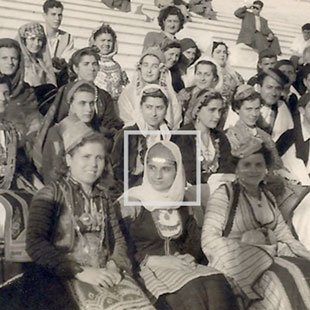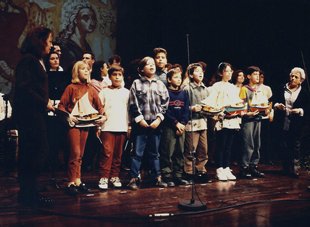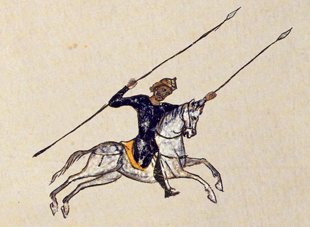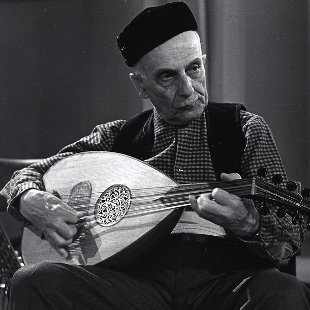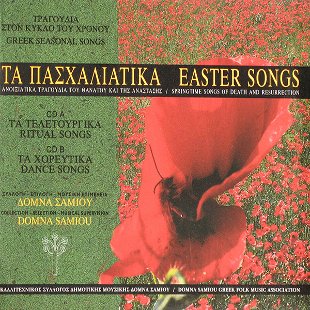You are at: Home page Her Work List of Songs Leilalim (Lilac-sweet)
Easter Dance
Λέιλαλιμ
Listen
Lyrics
Oh, I’m standing on the castle height,
lilac-sweet, my love, my love, lilac-sweet, lilac-sweet.
I am all of twelve years old,
alack, alack, good master.
And since I reached the age of twelve, lilac-sweet,
I’ve been chasing after girls, good master.
They’re eating melons in the castle, lilac-sweet,
were I to eat them too, what would they say, good master?
Were I to sit down too, to eat, lilac-sweet,
they’d say I am in love with her, good master.
Below the castle is a garden, lilac-sweet,
damnation to Arabia, beneath the sway of Arabs, good master.
[Oh, the girls of Araby, lilac-sweet,
they wear not knickers nor a skirt, good master.
The castle stands close by another, lilac-sweet,
between the two there flows a stream, good master.
I descended from the castle, lilac-sweet,
I hurtled down, a trundling hoop, good master.
I was straw and ripe to burn, lilac-sweet,
your breath, it would have kindled me, good master.
On the threshold of the castle, lilac-sweet,
turn back the men who make to leave, good master.
Oh, strike and strike again and kill, lilac-sweet,
the ones deserting what they love, good master.]
Translated by John Leatham
Original Lyrics
Λέιλαλιμ
Βάι, καλενίν μπασιντά ιμ, Λέιλαλιμ* γιαρ γιαρ, Λέιλαλιμ, Λέιλαλιμ
Ον ικί γιασιντά ιμ, Εφέντιμ αμάν, αμάν.
Ον ικί γιαστάν μπερί, κιζλαρίν πεσιντέ ιμ.
Βάι, καλεντέ καβούν γιρλέρ, μπίζ ντε βάρσακ νε ντιρλέρ.
Οτουρσάκ μπίζ ντε γισέκ, σου σουνού σεβμίς ντιρλέρ.
Βάι, καλενίν αρντί μποστάν, γικιλσίν Αραμπιστάν.
[Αραμπιστάν κιζλαρί, νε ντον γκιέρ νε φιστάν.
Καλέ καλεέ μπακάρ, αρασιντά τσάι ακάρ.
Καλεντέν ινίορντουμ, τσαρκ γκιμπί ντονίορντουμ.
Μπιρ οτ ολντούμ μπιρ κιμπρίτ, ουφλούρσεν γιανίορντουμ.
Καλενίν μπεντενλερί, τσεβίριν γκιντενλερί.
Βούρουν, βούρουν, ολντούρουν, γιαρί τέρκ εντενλερί.[
* Ο κ. Καπλάνης Ιωσηφίδης της Στέγης Πολιτισμού Νέας Καρβάλης το μεταφράζει ως «μενεξεδένια μου» από το leylâk (μενεξές).
Η Μάνια Σεφεριάδη σημειώνει επιπλέον ότι ενδέχεται να έχει σχέση με την ρίζα leylâ (βαθιά, πολύ σκοτεινή νύχτα) και ίσως με την Λεϊλά του έπους Η Λεϊλά και ο Μετζνούν (Leylâ ile Mecnun) του Οθωμανού ποιητή Fuzulî (1494 - 1556).
Vay, kalenin başındayım, Leylalım, yar yar, Leylalım, Leylalım
on iki yaşındayım, Efendim aman, aman
On iki yaştan beri, kızların peşindeyim.
Vay, kalede kavun yirler, biz de varsak ne dirler.
Otursak biz de yisek, şu şunu sevmiş dirler.
Vay, kalenin ardı bostan - yıkılsın Arabistan.
[Arabistan kızları, ne don giyer, ne fistan.
Kale kaleye bakar, arasında çay akar.
Kaleden iniyordum, çark gibi dönüyordum.
Bir ot oldum, bir kibrit, üflürsen yanıyordum.
Kalenin bedenleri, çevirin gidenleri.
Vurun, vurun, öldürün, yari terk edenleri.]
Απόδοση στα Ελληνικά
Βάι, βρίσκομαι στην κορφή του κάστρου, Λέιλαλι μου, γιαρ γιαρ
Είμαι δώδεκα χρονών, αφέντη μου αμάν, αμάν.
Από δώδεκα χρονών, κυνηγάω τα κορίτσια.
Στο κάστρο τρώνε πεπόνια, αν πήγαινα κι εγώ, τί θα ’λεγαν.
Αν καθόμουνα κι εγώ να φάω, θα λέγανε ότι την αγαπώ.
Πίσω απ’ το κάστρο είναι ένα μποστάνι - ας γκρεμιστεί η Αραβία.
[Τα κορίτσια της Αραβίας, ούτε βράκα φορούν ούτε φουστάνι.
Κάστρο με κάστρο απέναντι, ανάμεσά τους τρέχει ρυάκι.
Κατέβαινα απ’ το κάστρο, κατρακυλούσα σαν τσέρκι.
Έγινα χόρτο, έγινα σπίρτο, αν με φυσούσες, θα ’παιρνα φωτιά.
Τοίχοι του κάστρου, γυρίστε πίσω αυτούς που φεύγουν.
Χτυπήστε, χτυπήστε, σκοτώστε, αυτούς που εγκαταλείπουν την αγάπη τους.[
Information
- Region: Cappadocia / Konya
- Area: Karvali
- Type: Couplets
- Categories: Easter Song, Love Song, Ritual Song
- Rhythm: 4 beats
- Dance style: Local dance
- Duration: 02:48
Collaborators
- Singer: Women's Group from the cultural branch N. Karvalis of the Centre for Cappadocian Studies
Albums
Notes
Little study has been made of Cappadocian songs of all kinds. For obvious reasons, this is especially true of songs sung by Turkish-speaking Christian communities. We are therefore ignorant of much that concerns their origin, meaning, and performance, and the influences to which they were subject and which they exercised in turn. However, the form and content of Cappadocian songs, sung by both the Greek- and Turkish-speaking communities, provide evidence of the coexistence of peoples of different races and different cultures in this particular region with a chequered past.
“Leilalim” is a women’s Easter dance still danced and sung by refugees and their descendants from the area of Gelveri in north-west Cappadocia, most of them now settled in Nea Karvali, Kavala. It is danced after the Agape office (part of the vespers service) on Easter Sunday and up to Ascension Day, and was accompanied only by daïrédes (a kind of tambourine) and the song of the same name. In the past it was danced also on other occasions, such as on the 1st of August, ‘the day of bonfires’ and on the Epiphany, ‘sta Sàyia’. But in every instance it was danced by women alone; before she took her place at the head of the circle, the lead dancer had to obtain leave of her mother. Miranda Terzopoulou - Zoe Margari (1998)
Recording information
Recorded in December 1997 in Nea Karvali by a team from the Athens Concert Hall Recording Center.
Member Comments
Post a comment
See also

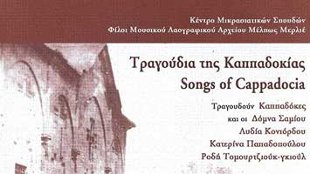
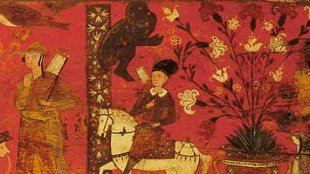
Song
Arta’s Bridge
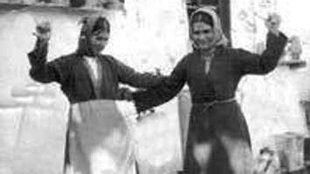

Song
Glory Be to Every Day
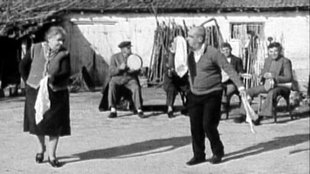
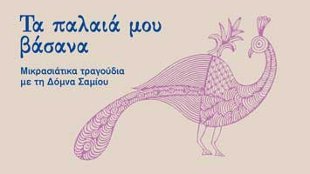

Song
My Son, Why Dont You Go and Wash?

Song
Now Hear Me,…

Singing Spring
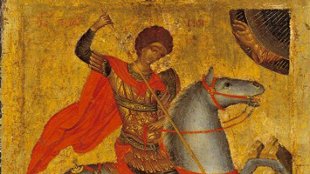
Song
Song of Saint George

Song
Today, dear George...


